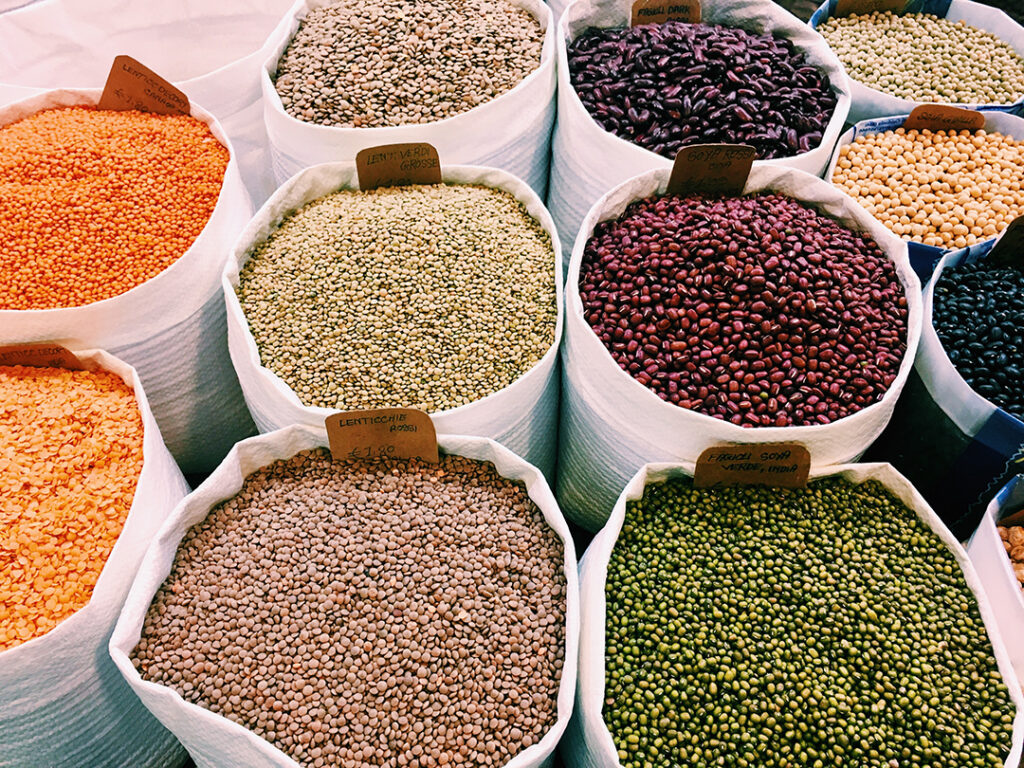Halal, kosher, and the Eucharist: The meaning of food in religion
Halal, kosher, and the Eucharist: The meaning of food in religion
Islamic Ramadan, Jewish Pesach, and Christian Easter occurred around the same time in 2023. What is the meaning of food in these religions and celebrations?
Food, eating, and diet have significant meanings in many religions, including Islam, Judaism, and Christianity. Food and different habits and cultures around it also relate to religious traditions, doctrines, and even celebrations.[1] In 2023, Islamic Ramadan, Jewish Pesach, and Christian Easter occurred around the same time. What kind of food was related to these religious celebrations?
Halal at Iftar – Islamic Ramadan
In Islam, Ramadan is a holy month, celebrated for the Prophet Muhammad’s revelations of the Koran. During Ramadan, Muslims abstain from eating anything, halal or not, from dawn to sunset. ‘Halal’ is Arabic and means lawful or permitted. With regards to food, it refers to something that is allowed under Islamic law. Halal meat, for instance, is slaughtered in a certain way. Some meat, such as pork, is always forbidden, as is alcohol. Vegetables and fruits are usually halal as such.[2]
During Ramadan, the meal breaking the fast at sunset is called Iftar.[3] At Iftar, Muslims enjoy a meal festively with friends and family. Iftar is the ‘highlight’ of the day – or better, night – and it often includes healthy and nutritious food such as dates.[4] The feast ending the whole Ramadan month is called Eid al-Fitr, or ‘Sweet Eid’.[5] Eid is celebrated by enjoying a festive breakfast, sharing food and gifts, praying together, and wearing new clothes.[6]
Kosher at seder – Jewish Pesach
In Judaism, the holiday celebrated in the spring is called Pesach or Passover. The week-long holiday starts with a ritual seder meal consisting of kosher food.[7] Kosher, like halal, means something allowed, suitable, and pure in Jewish tradition.[8] Regarding food, it refers to everyday guidelines concerning certain products and how they are prepared, deriving from Torah and Rabbinic literature. For instance, meat and milk are forbidden to mix, and only fish with scales is allowed. Pork and seafood such as shrimps, crabs, clams, and lobsters are forbidden as well.[9] [10] Kosher guidelines also concern animal slaughtering and the cultivation and production of wine.[11]
During Jewish Pesach, the seder meal is a way to remember the Exodus, the liberation of the Israelites from slavery in Egypt as told in the Torah. The seder meal includes, for instance, drinking four cups of wine, dipping veggies into saltwater, and eating matzah, a cracker-like bread. During Pesach, Jews do not consume or even own anything containing grain that has risen. Therefore, kitchens are cleaned out of all bread, pasta, cakes, and cookies before celebrating Pesach.[12]
Bread and wine at communion – Christian Easter
In Christianity, Easter is celebrated for the crucifixion and resurrection of Jesus Christ as told in the Bible. Christian Easter is preceded by Lent which includes acts of fasting, similar to Ramadan. Lent takes 40 days and ends on Easter Sunday when eggs and lamb are usually enjoyed. Easter eggs symbolise the resurrection, and the lamb the sacrifice of Jesus Christ.[13]
On Maundy Thursday, the Thursday before Easter, Christians celebrate Jesus Christ’s institution of the Eucharist during the Last Supper. Eucharist consists of bread and wine understood as the body and blood of Jesus Christ. On Maundy Thursday, Christians all over the world gather for communion.[14]
The role of food in religious ethics and doctrines
Even though there are clear differences between different religious traditions and their celebrations, something is common to all of them. Food, and its role in Islam, Judaism, and Christianity, carry an essentially ethical and doctrinal value. In Islam, Ramadan also refers to spiritual self-reflection that strengthens empathy and emotional control. Experiencing hunger during the day teaches the importance of sympathise with the poor and deprived. In addition to fasting, Ramadan also involves abstaining from smoking or having sex, and doing charity instead.[15] [16]
In Judaism, kosher is not just about eating and cooking according to specific rules but it is also about communal identity and identity politics.[17] Enjoying kosher is considered spiritually purifying whereby kosher is viewed as not just food for the body, but food for the soul.[18]
In Christianity, fasting during the 40 days of Lent is nowadays understood broadly. Instead of just abstaining from eating, the focus is often on spiritual self-reflection and making space for praying and meditation. In times of climate change, it has become more common to observe ‘eco-Lent’, for instance. Eco-Lent encourages people to protect the nature by moderating consumption.[19] As for the Eucharist, the doctrinal emphasis is not only on the presence of Jesus in the bread and wine. Eucharist is also viewed to strengthen the communion of believers with one another.[20]
Taken together: food in Abrahmic religions
As shown in this article, all the Abrahamic religions, Islam, Judaism, and Christianity, have their own perspective and attitude toward the role and meaning of food in their traditions. What unites these religions, however, is their understanding of food as something ritual, something transcendent. Therefore, we should always remain respectful of others’ diets and appetites – there might be something sacred behind those choices.
Our team of analysts conducts research on topics relating to religion and society. Find out their relationships on the EARS Dashboard.
Sources
[1] See Mäkinen, V. & Pesonen, H. & Uro, R. (2023). Pyhä, paha ruoka: uskonnon ja etiikan näkökulmia. Gaudeamus.
[2] Halal food: What does it mean?
[3] Muslimien pyhä kuukausi ramadan on paaston lisäksi yhdessäolon ja hauskanpidon aikaa
[4] Ibid.
[5] Eid Al-Adha 2022: When is it, how is it celebrated and how to wish someone a happy Eid
[6] When Is Eid Ul-Fitr 2023? Eid Al-Fitr Date In India, History, Significance, All You Need To Know About Holy Festival
[7] Pesach (Passover) 2023 is from April 5 to April 13, 2023
[11] Ibid.
[12] Pesach (Passover) 2023 is from April 5 to April 13, 2023
[15] When Is Eid Ul-Fitr 2023? Eid Al-Fitr Date In India, History, Significance, All You Need To Know About Holy Festival
[16] Muslimien pyhä kuukausi ramadan on paaston lisäksi yhdessäolon ja hauskanpidon aikaa
[17] Tuori, R. (2023). Mikä on koseria? Sopiva ruoka juutalaisuudessa. In V. Mäkinen, V. & H. Pesonen & R. Uro (ed). Pyhä, paha ruoka: uskonnon ja etiikan näkökulmia. Gaudeamus. 60-71.






